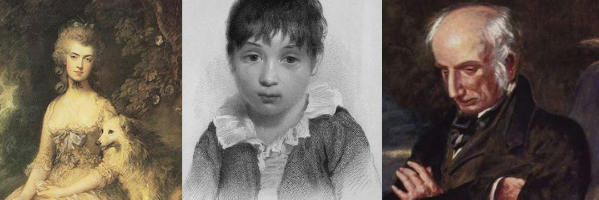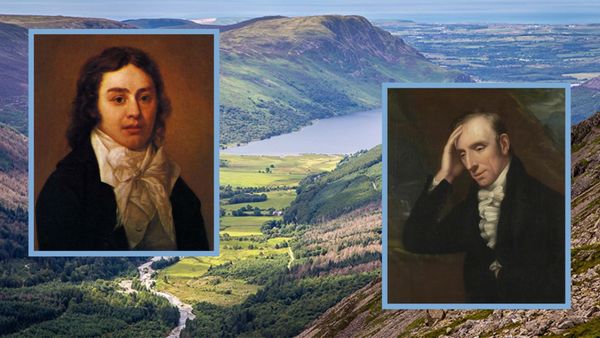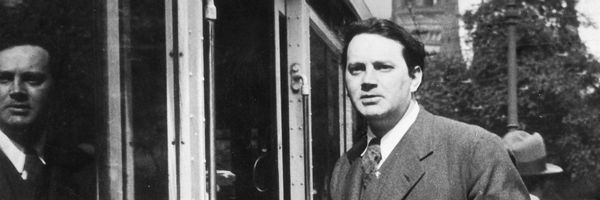Awaiting the Best Philosopher

Recollections of Early Childhood
That William Wordsworth would, starting in the late 18th century, begin writing an epic poem about the growth of his mind from childhood to his current state as a mature poet is interesting enough; that this lengthy, metrical task—in 13 books by 1805, eventually expanding to 14—should be done as an unpublished personal exercise is particularly fascinating. What Wordsworth had to understand for his other work is how it was that his childhood prepared his mind to have the imaginative faculties that he cherished in his adult life—the means by which a sight of daffodils could "flash upon that inward eye" and bring "tranquil restoration" in later years. Wordsworth's findings were not merely of value to himself, but John Stuart Mill, for instance, wrote that through Wordsworth's poetry, he "gradually, but completely, emerged from my habitual depression, and was never again subject to it."
Was it Wordsworth's schooling that taught him to become the poet we know? That is one subject he covers, but far from exhaustive, and even there a section full of his life outside of his schooling itself. As the poem open, Wordsworth suggests that should his guide "Be nothing better than a wandering cloud, / I cannot miss my way." Then by the end, he declares himself a "Prophet of Nature." Though Wordsworth appreciates the cloud and the daffodil and so on, however, what assures that even a "wandering cloud" could be a worthy guide is his mind, which even in his infancy, responded to something divine in the world—but with a power internal to himself.
In his ode, "Intimations of Immortality from Recollections of Early Childhood," he opens with a sense of grief that the world once appears to him with "The glory and the freshness of a dream," and now "The things which I have seen I now can see no more." What Wordsworth believes, though, and which powers The Prelude, is that through reflection he can recover some of this imaginary power. He goes on to write:
Thou best Philosopher, who yet dost keep
Thy heritage, thou Eye among the blind,
That, deaf and silent, read'st the eternal deep,
Haunted for ever by the eternal mind,—
Mighty Prophet! Seer blest!
On whom those truths do rest,
Which we are toiling all our lives to find
What is lost in our "toiling," though is that we are not looking back to this proper source! Through the recollection of early childhood, Wordsworth finds that he is ultimately able to once again (and "evermore") "hear the mighty waters rolling"—as well as his wider range of thoughts.
In the end, it is "years that bring the philosophic mind," and though he recognizes that there is still something lost, Wordsworth finds the sort of "abundant recompense" he describes in "Tintern Abbey." Ultimately, he declares:
I only have relinquished one delight
To live beneath your more habitual sway.
And though that world of childhood delight functions as "a master-light of all our seeing," that earlier experience is expanded over time if properly fostered and earnestly sought. It is from his present perspective that he is able to experience the "Thoughts that do often lie too deep for tears" of his last line—caught within the mystery of childhood, but with a refined, poetic capacity for expression. There is still much to produce wonder, but it is not, Wordsworth finds, the subject of most books, and must be nurtured in other ways.
Anticipations of Early Childhood
In addition to the personal recompense of recollection for Wordsworth and Mill, ideas of how to best support a child's imagination and growth as the "best philosopher" were held in anticipation of future generations as well.
Perhaps the most famous example is Samuel Taylor Coleridge's "Frost at Midnight," in which his heart is fulled with "tender gladness" to look on his sleeping child and know that he will be raised in nature rather than, like himself, in the city. I have written previously of Coleridge's expectations there and his wider "love of future existence" in an earlier post, and jump here to thoughts from fellow poet Mary Robinson on Coleridge's child.
In 1800, two years after Coleridge wrote "Frost at Midnight," Robinson visits and writes the following poem:
Ode Inscribed to the Infant Son of S.T. Coleridge, Esq.
Born Sept. 14, 1800, at Keswick, in Cumberland
Spirit of light! whose eye unfolds
The vast expanse of Nature's plan!
And from thy eastern throne beholds
The mazy paths of the lorn traveller — Man!
To thee I sing! Spirit of Light, to thee
Attune the varying strain of wood-wind minstrelsy!
O Pow'r Creative! — but for Thee
Eternal Chaos all things would enfold;
And black as Erebus this system be,
In its ethereal space — benighted — roll'd.
But for thy influence, e'en this day
Would slowly, sadly, pass away;
Nor proudly mark the Mother's tear of joy,
The smile seraphic of the baby boy,
The Father's eyes, in fondest transport taught
To beam with tender hope — to speak the enraptured thought.
To thee I sing, Spriit of Light! to thee
Attune the strain of wood-wild minstresly.
Thou sail'st o'er Skiddaw's heights sublime,
Swift borne upon the wings of joyous time!
The sunny train, with widening sweep,
Rolls blazing down the misty-mantled steep;
And far and wide its rosy ray
Flushes the dewy-silver'd breast of day!
Hope-fost'ring day! which nature bade impart
Heav'n's proudest rapture to the parent's heart.
Day! first ordain'd to see the baby prest
Close to its beauteous mother's throbbing breast;
While instinct, in its laughing eyes, foretold
The mind susceptible — the spirit bold —
The lofty soul — the virtues prompt to trace
The wrongs that haunt mankind o'er life's tempestuous space.
Romantic mountains! from whose brows sublime
Imagination might to frenzy turn!
Or to the starry worlds in fancy climb,
Scorning this low earth's solitary bourn —
Bold Cataracts! on whose headlong tide
The midnight whirlwinds howling ride —
Calm-bosom'd Lakes! that trembling hail
The cold breath of the morning gale;
And on your lucid mirrors wide display,
In colours rich, in dewy lustre gay,
Mountains and woodlands, as the dappled dawn
Flings its soft pearl-drops on the summer lawn;
Or paly moonlight, rising slow,
While o'er the hills the ev'ning zephyrs blow: —
Ye all shall lend your wonders — all combine
To bless the baby boy with harmonies divine.
O baby! when thy unchain'd tongue
Shall, lisping, speak thy fond surprise;
When the rich strain thy father sung,
Shall from thy imitative accents rise;
When thro' thy soul rapt Fancy shall diffuse
The mightier magic of his loftier Muse;
Thy waken'd spirit, wond'ring, shall behold
Thy native mountains, capp'd with streamy gold!
Thy native Lakes, their cloud-topp'd hills among,
O! hills! made sacred by thy parent's song!
Then shall thy soul, legitimate, expand,
And the proud lyre quick throb at thy command!
And Wisdom, ever watchful, o'er thee smile,
His white locks waving to the blast the while;
And pensive Reason, pointing to the sky,
Bright as the morning star her clear broad eye,
Unfold the page of Nature's book sublime,
The lore of ev'ry age — the boast of ev'ry clime!
Sweet baby boy! accept a Stranger's song;
An untaught Minstrel joys to sing of thee!
And, all alone, her forest haunts among,
Courts the wild tone of mazy harmony!
A Stranger's song! babe of the mountain wild,
Greets thee as Inspiration's darling child!
O! may the fine-wrought spirit of thy sire
Awake thy soul and breathe upon thy lyre!
And blest, amid they mountain haunts sublime,
Be all thy days, thy rosy infant days,
And may the never-tiring steps of time
Press lightly on with thee o'er life's disastrous maze.
Ye hills, coeval with the birth of time!
Bleak summits, link'd in chains of rosy light!
O may your wonders many a year invite
Your native son the breezy path to climb;
Where, in majestic pride of solitude,
Silent and grand, the hermit thought shall trace,
Far o'er the wild infinity of space,
The somber horrors of the waving wood;
The misty glen; the river's winding way;
The last deep blush of summer's ling'ring day;
The winter storm, that, roaming unconfin'd,
Sails on the broad wings of the impetuous wind.
O! whether on the breezy height
Where Skiddaw greets the dawn of light,
Ere the rude sons of labour homage pay
To Summer's flaming eye or Winter's banner grey;
Whether Lodore its silver torrent flings —
The mingling wonders of a thousand springs!
Whether smooth Basenthwaite, at Eve's still hour,
Reflects the young moon's crescent pale;
Or meditation seeks her silent bow'r,
Amid the rocks of lonely Borrowdale.
Still may thy name survive, sweet Boy! till Time
Shall bend to Keswick's vale — thy Skiddaw's brow sublime!
Extending Coleridge's hopes of natural wonder, Robinson also suggests that Coleridge's poetry itself is helping make that world more "sacred"—and in "To the Poet Coleridge," she refers as well to "thy new paradise exetended." Still, though, we see the sense of anticipation for what might come from the next generation, particularly if brought up in the way envisioned by poets such as Wordsworth and Coleridge. While the father's words are "loftier," the infant's "unchain'd tongue" and early "fond surprise" at the world will be a "mightier magic."
Though neither Hartley nor Derwent Coleridge were perhaps, in particular, the "best philosopher," this sense of anticipation—and recollection—is something we can learn from these poets. Not everything we ought to know comes immediately to the "philosophic mind," but we must listen as well to the infant's unchain'd tongue.
Sign-up below for more updates on literature past, present, and yet to come—delivered right to your inbox:





